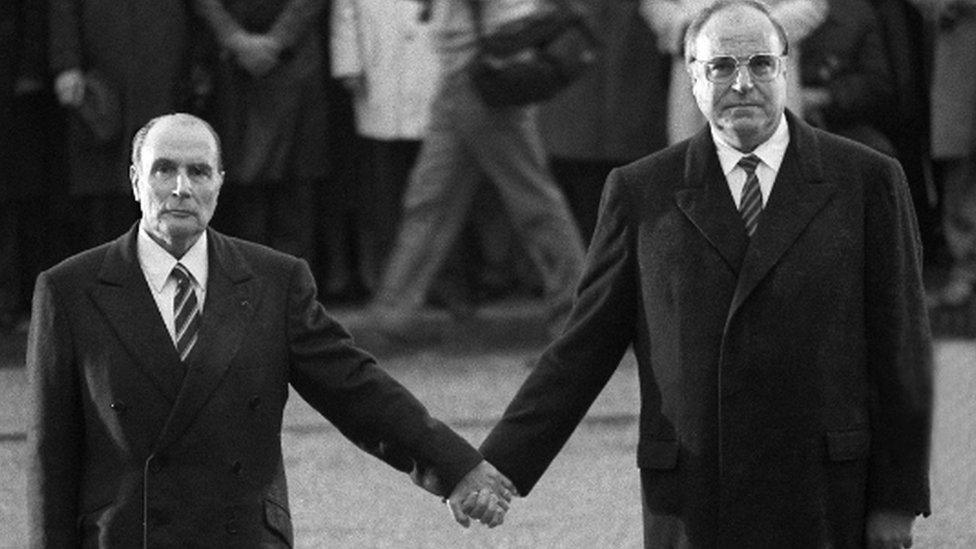The Somme: The battle that France forgot
- Published
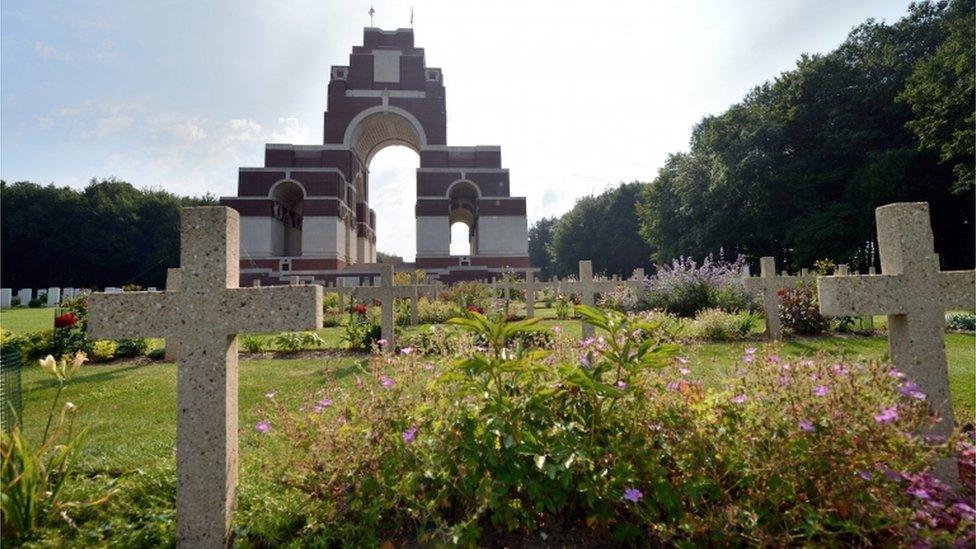
The Thiepval memorial to the thousands who died at the Battle of the Somme
When President Hollande attends the centenary on Friday, he will be the first French head of state at a Somme commemoration in more than 80 years.
President De Gaulle did not attend the 50th anniversary in 1966. Nor have his successors been at any subsequent event.
In fact the last time a French head of state went to a Somme commemoration was in 1932 when the long-forgotten Albert Lebrun helped inaugurate the Thiepval memorial alongside the future King Edward VIII.
In a way this is very odd, because the 1916 Battle of the Somme was not just a British battle - it was a French battle too.
The broad outlines of the Somme offensive had been drawn up by the Allies the previous winter - and initially the plan was for a joint attack on the German front with the British and French contributing roughly equally.
But then came the German attack on Verdun in February, which forced the French to divert resources to the east. In the end their share in the Somme was about one-third, to the British two-thirds.
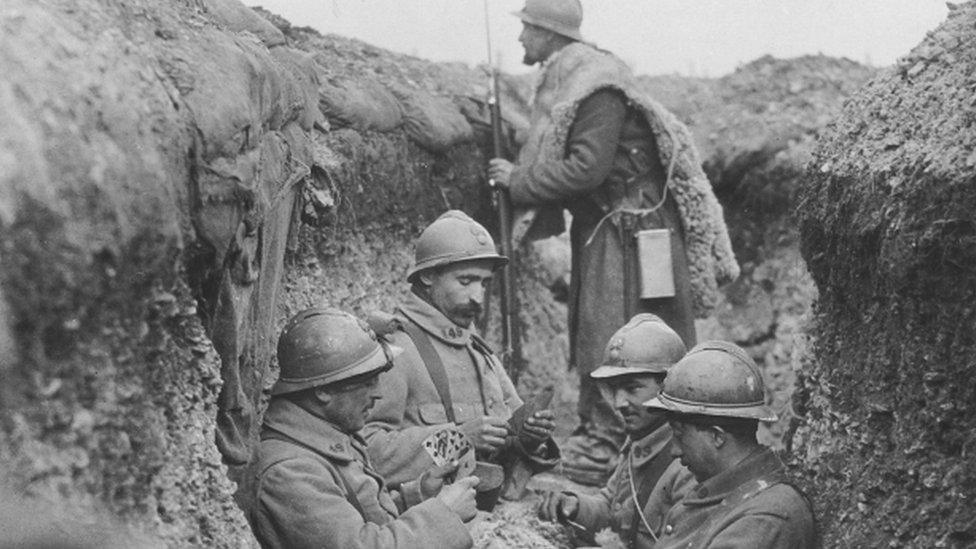
Many French troops fought during the 141-day conflict
In mid-1916, the British and French lines on the Western Front met just above the River Somme near the village of Maricourt.
The British line headed west towards Albert, then turned north alongside the little river called the Ancre. The French line went south across the River Somme.
Bloody first day
At dawn on 1 July both armies went into action. The disaster that befell the British, Irish and Commonwealth troops is well known.
Less celebrated are the successes of the French. In the first 10 days they achieved most of their objectives, advancing several miles at some points and taking 12,000 German prisoners.
"The French were more realistic in their ambitions, and they were also more experienced," says historian Marjolaine Boutet.
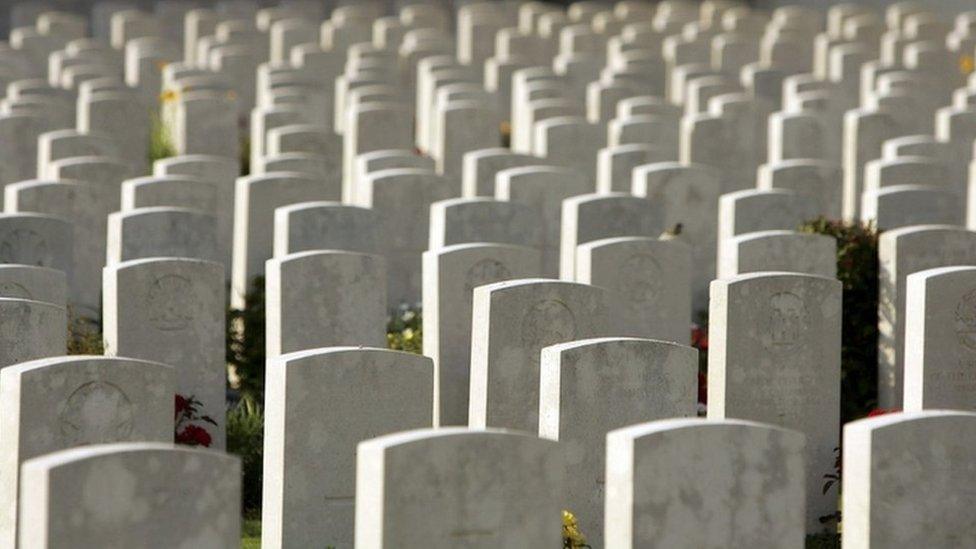
War graves of some of the thousands who died
"Many of the British troops were Kitchener volunteers, for whom the Somme was the first experience of fighting. The French had the battles of 1914 and '15 behind them."
Above all the French army seems to have been better at advancing under supporting artillery.
British units, less experienced, moved forward at a set rhythm - theoretically timed to match the slow advance of the rolling barrage. Hence the famous descriptions of Tommies walking into machine-guns.
The French expected less of their artillery, and their troops were encouraged to use terrain and "duck and run".
The other factor behind the French success was that they faced a lesser enemy.
"The Germans were not expecting a French attack. They were far more worried about the British, so they had concentrated their reinforcements on the northern part of the sector. That meant that the French had an easier time of it," says historian Stephane Audoin-Rouzeau.
In the end the Somme settled into a dreadful four-month battle of attrition, in which the French suffered, just as the British and the Germans did.
Most estimates put the number of French casualties at about 200,000 (killed, missing or wounded). The British and Germans had more than 400,000 casualties each.
As Audoin-Rouzeau points out, this makes the Somme a more costly battle than the simultaneous battle of Verdun - in which about 300,000 men died.
The Somme was also vastly more significant, from a strategic point of view.
In the end, Verdun had virtually no impact on the course of the war. But historians now believe that the Somme convinced German generals of growing Allied strength, and thus tipped them into the submarine war on shipping - which in turn brought in the Americans.
So how come the French care so little about a battle of such importance, in which so many of their own troops were killed?
"The Somme has been completely forgotten in France," says Audoin-Rouzeau.
"Sometimes I take groups of French people around the battlefields, and they are dumbfounded. They are discovering it for the first time."
Fight for survival
The main reason is that the Somme was completely overshadowed in the nation's narrative by Verdun.
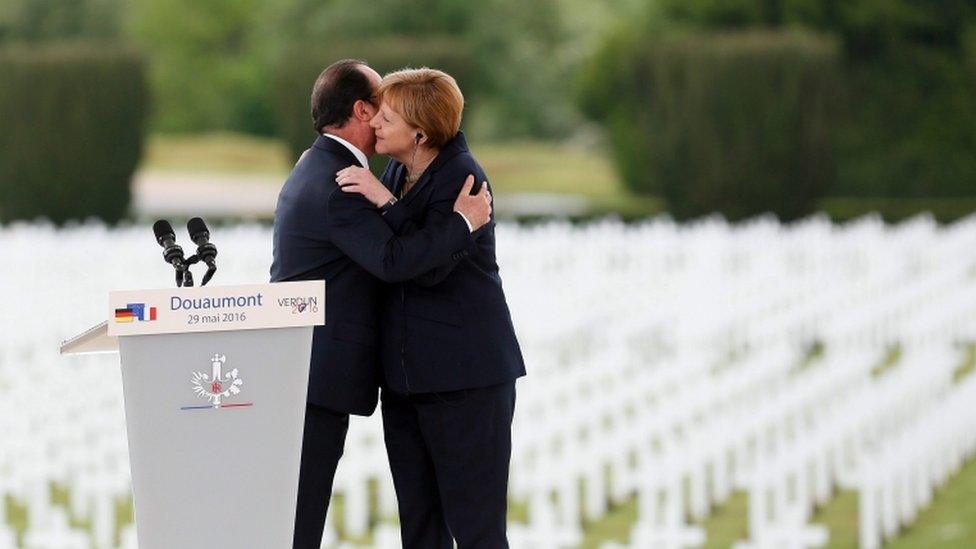
President Hollande and Chancellor Merkel attended the centenary Verdun commemorations
"Verdun fits much better into the story France told itself after the war," says Boutet.
"Verdun was a defensive battle. It was France fighting for survival against the invading Germans. And years later, Verdun became the perfect symbol for the new Europe - built on Franco-German reconciliation.
"The Somme is much more complicated. Not only was it an offensive battle. It was also fought alongside another army, the British. That has always made it a more awkward memory for the French."
President Hollande's decision to attend the centenary was taken at the very last minute. Right up until the middle of this week, he was to be replaced by Prime Minister Manuel Valls.
Oddly, the Brexit vote last Friday may have been a factor in his change of heart.
Had he stayed away, it might well have been interpreted as a distasteful snub. In fact it merely reflects the Somme's relative unimportance in France's national memory.

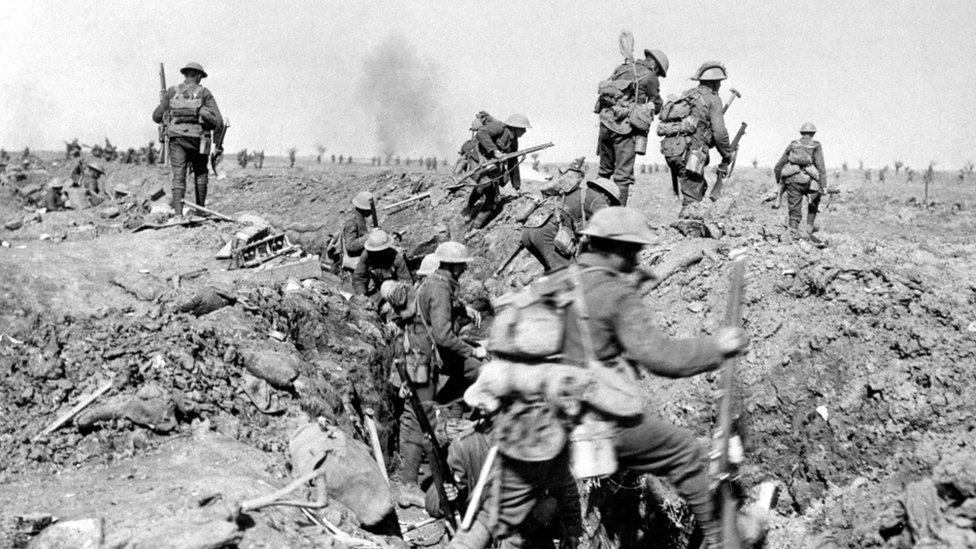
WW1 Allied troops leave a trench before the Battle of Morval, which took place as part of the Battle of the Somme in 1916
Battle of the Somme:
One of the bloodiest conflicts of World War One. For more than four months the British and French armies engaged the Germans in a brutal battle of attrition on a 15-mile front.
The aim was to relieve the French army fighting at Verdun and to weaken the German army.
In total, there were over one million dead and wounded on all sides, including 420,000 British casualties, about 200,000 from France, and an estimated 465,000 from Germany.
On the first day of the battle alone 19,240 British soldiers were killed capturing just three square miles of territory - the bloodiest day in the history of the British army. However, the French had more success and inflicted big losses on German troops.
Fighting was finally suspended after 141 days, as winter was closing in and British commander Gen Douglas Haig decided the offensive should be resumed in February.
At the end of hostilities the British had advanced just seven miles and failed to break the German defence.
However, in March 1917, the Germans made a strategic retreat to the Hindenburg line rather than face the resumption of the Battle of the Somme.
Find out more:

- Published5 April 2016
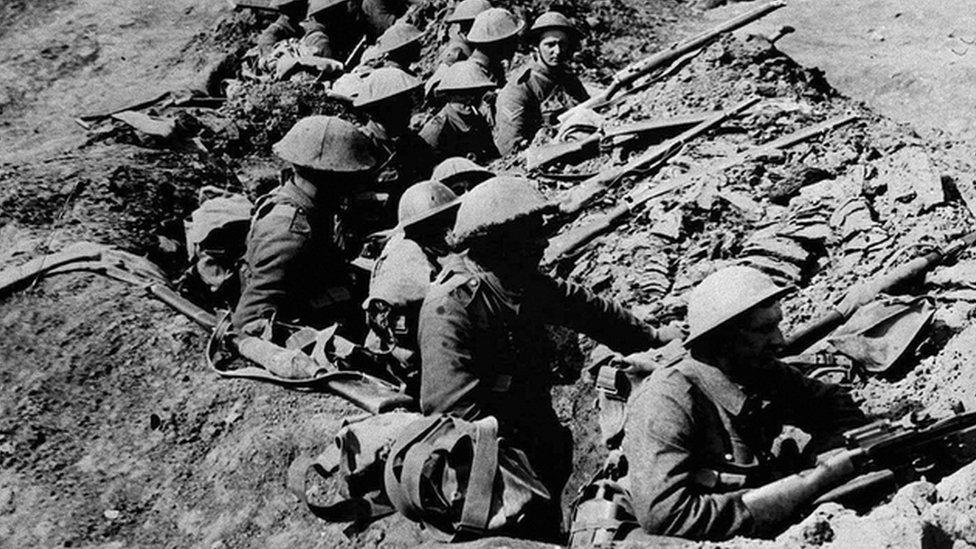
- Published20 November 2015

- Published28 May 2016
